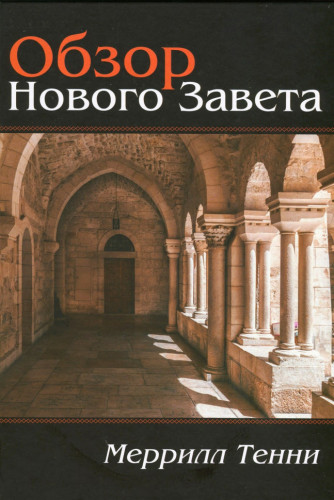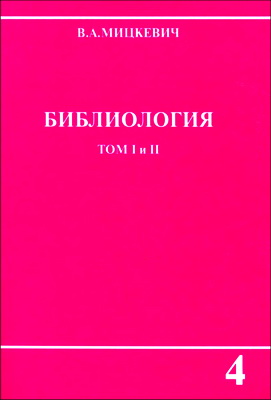
Houlden - Jesus in History, Thought, and Culture - An Encyclopedia - модуль BibleQuote
Leslie Houlden - Jesus in History, Thought, and Culture - An Encyclopedia.
Santa Barbara, CA: ABC-CLIO, Inc., 2003. – 1032 p.
ISBN 1-57607-856-6 (alk. paper)
ISBN 1-57607-857-4 (e-book)
It is hard to think of a subject that lends itself more naturally than Jesus to presentation in an encyclopedia. There are so many ramifications of his influence, so many aspects of his effect on the world in the past twenty centuries, that, as this present work has developed, it has come to seem without end: new subjects kept coming into view, and so did the sense that many more could have been included. To take a basic matter, nobody else in the world’s history has the distinction of having that history divided for most human beings at the supposed point of his entry into it. Whether we divide history into B.C. and A.D. (“before Christ” and “the year of the Lord”) or the new and religiously neutral B.C.E. and C.E. (“before the common era” and “common era”), the point of division is the same; Jesus’ effect seems to be ineradicable, despite all attempts to neutralize it! He has of course been the subject of innumerable books of many different kinds down the years, across a wide range of disciplines, and the millennium saw a particular surge of interest. But so wide-ranging and diverse (one could say encyclopedic) have been his effects that there is ample room for treatment in this flexible medium and format.
This book sets out to focus on as many aspects as possible of the phenomenon of Jesus in the past two thousand years: first, as a figure of the first century; then as the object of both thought and devotion in every succeeding period, giving rise to both brilliance and complexity; also as a major influence and subject in art, music, and literature, down to the present. Individual articles may fall into one of the three main categories (history, culture, thought), or they may crisscross as their subject demands. Much good can come from making connections across conventional boundaries.
* * *
Hengel, Martin (b. 1926)
Martin Hengel, formerly professor of New Testament and Early Christianity at the University of Tübingen, is best known for his influential work on the involvement of Greek culture in Judaism in the final centuries of the pre-Christian era. He showed this involvement to have been more varied and pervasive than had generally been recognized. He has, however, published a large number of works, often brief monographs, on New Testament matters—and in particular on the life of Jesus in its first-century setting. Much of this work has been notably traditional in tendency, reasserting unfashionable opinions about matters of authorship and the relations between the various New Testament writings.
He was, however, responsible for one of the most original and helpful models available to us for understanding the character of Jesus’ person and mission in the context of his times. It comes in his short book The Charismatic Leader and His Followers (1968). The question is: How may Jesus best be characterized?
As rabbi, or prophet, or messianic leader, or liberator? On the evidence of the Gospels’ contents, none of these is an impossible candidate, understood in context. From some passages, especially in the Gospel of John, we might add: Jewish mystic. But Hengel’s proposal makes us attend to some of the most striking and undeniable features of Jesus. One of its chief virtues is that while “leader” allows us to do justice to the undoubtedly political aspect of his activity, given the realities of Jewish life—and indeed, in one way or another, to the manner of his death, “charismatic” leads us to consider Jesus’ striking originality. He took people by surprise and stirred them to a fresh sense of God. Above all, and it is often forgotten, his mission was unique in its surviving and its spreading, however much later developments of course aided the process.
Hengel chose to focus on Matt. 8.22: “Let the dead bury their dead,” and to ask us to face the sheer cultural and religious novelty, and even immorality in conventional terms, of such a command to would-be followers. In working out such a view and claiming its historical authenticity, Hengel is firmly among those who are far from despairing of the possibility—as well as the importance—of forming a valid picture of the historical Jesus. It was Hengel’s further strength that he chose to see him in terms that both appeal to modern sociological categorizing and have helpful theological resonance.
Jesus was a radical challenger of conventional wisdom and morality. The summons of the Kingdom of God put into the shade the religion of day-by-day obedience, or at least gave it a refreshing new context and purpose.
When it comes to a wider study of the origins of Christology, Hengel sees Jesus himself as the most likely innovator—that is, the gist of the messianic claims that came to be made for him, as early as Paul and indeed before, are best seen as issuing in essence from Jesus himself.
Leslie Houlden
See also: Kingdom of God; Matthew, Gospel of; Messiah; Son of God References.
- Hengel, M. 1968, 1981. The Charismatic Leader and His Followers. Edinburgh: T. and T. Clark.
- ———. The Son of God. 1976. Philadelphia: Fortress.
- ———. Crucifixion. 1977. Philadelphia: Fortress.
- ———. 1995. Studies in Early Christology. Edinburgh: T. and T. Clark.





Комментарии
Пока нет комментариев. Будьте первым!